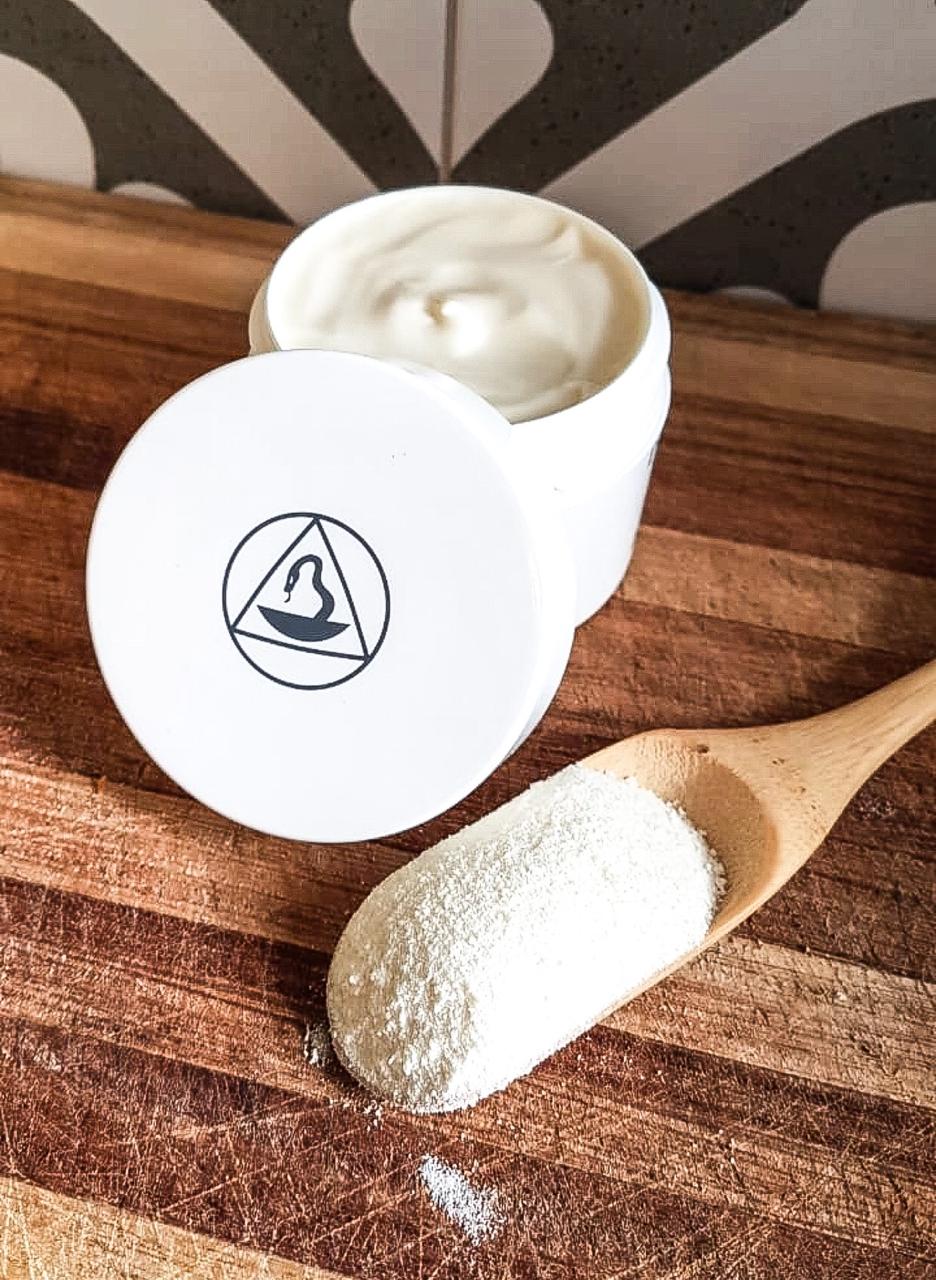
Collagen in and out
Collagen… this seems to be the current buzz word in the beauty industry at the moment… but why? I want to help you learn a bit more about it and why there is such a hype around it right now.
What is collagen?
Collagen is a very important protein in our bodies. It provides structure to our skin, hair, joints, bones and many other body parts. Collagen provides strength, structure, elasticity and protection in various parts of our bodies. Our body makes collagen and our collagen production slows down as we age. Environmental factors can also slow down collagen production, such as exposure to UV light (sun), smoking, eating refined sugar, etc. When our natural collagen production slows down, our skin starts to show signs of premature aging, such as fine lines and wrinkles and it can also become drier.
Why is this good to know?
Many of us want to age well, or even defy aging. This is possible to a certain degree, but we also must accept the inevitable. There are many things we can do to reduce ‘premature ageing’; which is looking older than your years. South Africa has a very harsh climate, so our skins tend to show signs of premature aging at a much younger age than people living in less sunny climates such as Europe, for example. And the number 1 reason is sun exposure.
How can we protect our skin and bodies against collagen loss and premature aging?
There are a number of ways we can protect our skin and our bodies from collagen loss and the signs of premature aging.
- Behaviour change – we can protect our skin and bodies from toxins such as sugar, smoking, etc.
- Wear sunscreen – we should always protect our skin from UV rays. UV damage is the number 1 cause of premature ageing and slows down collagen production.
- Eating healthily – we can make sure we eat a varied, healthy diet with all the necessary proteins and antioxidants to help our bodies fight off toxins and help cells repair themselves.
- Supplement our diets – we can take collagen supplements when our diet is lacking and boost the number of collagen proteins in our diet.
- Protecting our skin and helping it regenerate – using appropriate, good quality skin care products to slow down the formation and appearance of fine lines and wrinkles and ensuring our skin has the moisture it needs to keep looking plump and heathy.
Ways of stimulating collagen production:
There are several ways to stimulate collagen production in the skin, some are less invasive and costly than others, and some have risks.
- Collagen creams and serums – these are products that contain the necessary ingredients to feed, protect and plump up your skin to prevent moisture loss, the formation of fine lines and wrinkles and that help facilitate cell regeneration. These are not very costly and have little to no risk at all.
- Collagen salon treatments – these are serums or creams that are applied by skin care therapists in more concentrated doses sometime using machinery to facilitate deeper penetration of ingredients for longer term benefits for your skin. The cost of these can vary and there can be minor risks, but in general these are quite safe and tolerable to most skin types.
- Collagen supplements – these are powders or pills, usually containing hydrolysed collagen peptides, that are more readily absorbed by your body, to provide your whole body, not only your skin, with collagen proteins for overall benefits (of which there are many). The costs of these can vary and there are very few side effects.
- Aesthetic treatments such as microneedling, fibro-blasting or chemical peels that stimulate collagen production by damaging collagen fibres in skin, or the cells that produce collagen, and accelerate cell turnover. These procedures force the collagen fibres to repair themselves by damaging them. These procedures can be costly and they do have risks. The risks are scarring, increased hyperpigmentation, broken capillaries, and other complications such as aggravating rosacea, dermatitis, eczema, acne, etc. There can be long-term benefits of these treatments if you take the time and make the effort to support these treatments with the correct changes in behaviour and skin care; such as living healthily, wearing sun screen and using the correct products to protect and nourish your skin.
How can we boost the collagen in our skin naturally and cost effectively?
In short, this can be done in 2 ways – from within and from without.
- You can protect your natural collagen production by feeding your skin and body what it needs to build and repair collagen fibres in your body, such as by taking hydrolysed collagen powders or pills.
- You can apply appropriate products to your skin to help prevent collagen damage, water loss and protect your skin from environmental factors that cause premature ageing.
Our collagen range is one of our bestselling ranges and is appropriate for anyone who has dehydrated skin, is in their mid- to late-30s or older and who’s skin is starting to show signs of premature aging:
- fine lines
- wrinkles
- dryness
- loss of elasticity
- dullness.
Partnered with our Sun Shield SPF 50 to protect skin from UV exposure, you will start to see an amazing improvement in the condition of your skin, but also slow down further premature ageing and loss of natural collagen.
NEWS: We are currently running an amazing giveaway in partnership with onutricia and takenbystorm. Take a look at our Facebook and Instagram pages to find out more and how to enter.
@doctorecksteinsa
@eckstein.biokosmetik.sa
@onutricia_collagen
@takenbystormbeauty_